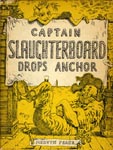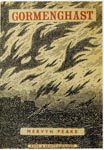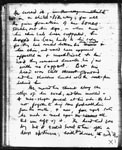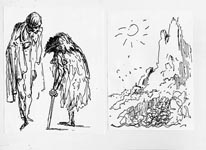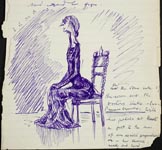Novels
Enter the world of Gormenghast...
Gormenghast is the vast crumbling castle to which the seventy-seventh Earl, Titus Groan, is Lord and heir. Gothic labyrinth of roofs and turrets, cloisters and corridors, stairwells and dungeons, it is also the cobwebbed kingdom of Byzantine government and age-old ritual, a world primed to implode beneath the weight of centuries of intrigue, treachery, manipulation and murder - a world suggested in a tour-de-force that ranks as one of this century's most remarkable feats of imaginative writing.
Titus Groan was published in 1946 and was followed by Gormenghast in 1950 and Titus Alone in 1959.
Extracts from Gormenghast
- Lady Clarice and Lady Cora
- Mr Flay
- Fuchsia
- Fuchsia's attic
- Gertrude
- Gormenghast
- Irma Prunesquallor
- The Poet
- Pentecost
- Doctor Alfred Prunesquallor
- Rottcodd
- Sepulchrave
- Steerpike
- Abiatha Swelter
- Titus Groan
- The Tower of Flints
- The "Wild Thing"
The books were out of print for a short time in the 1950’s but became enormously popular after Peake’s death in 1968 and remain in print now in many languages.
As part of its Millennium Celebrations, the BBC produced a televison adaption of The Gormenghast Trilogy.
Visit the official Gormenghast website
Mr. Pye
Heinemann, 1953
With an almost messianic zeal to covert the islanders to undiluted goodness, Mr Harold Pye’s mission in landing on Sark nearly leads to his downfall in an increasingly personal struggle between good and evil. The prejudices of a close-knit society shine through every page of the story, but in this tour de force the characters, cameos and events add up to a hilarious romp.
Boy in Darkness,
Published by Eyre and Spottiswoode, 1956 Man has lost his humanity . . . he survives now as the bullying man-hyena, the sycophantic man-goat, slavishly serving their terrible master, the lamb. The arrival of the young man, Titus, leads eventually to the release of the two humans trapped in their bestial shapes, and final destruction of the lamb. This is the story of faith in the ultimate triumph of the human mind over the forces of adversity and oppression.
Childrens' books
Captain Slaughterboard
Drops Anchor
Memories
of the two golden years when he lived on Sark between
1933-1935 were highly inspirational when this book for
children came to be written and illustrated.
Published first by Country Life in London in 1939, it
tells the adventurous tale of surely the definitive swashbuckler,
Captain Slaughterboard, a wild man determined to rule
the waves by force. Finding paradise at last on a tropical
island, and with a lifetime of bloody encounters, mutinies
and piratical subversions behind him, the captain settles
down with the Yellow Creature, the only other inhabitant.
In this idyll, and under the glittering sun, the two spend
their days fishing from high rocks above the sea, oblivious
to the outside world.
Letters from a Lost Uncle
Letters from a Lost Uncle from Polar Regions, a collection of letters written by an adventurer to his nephew in England. Originally written in 1945 the book was well-received but produced on poor quality paper. Mervyn Peake made several points to the publisher about the way it had been presented and eventually it was withdrawn.
